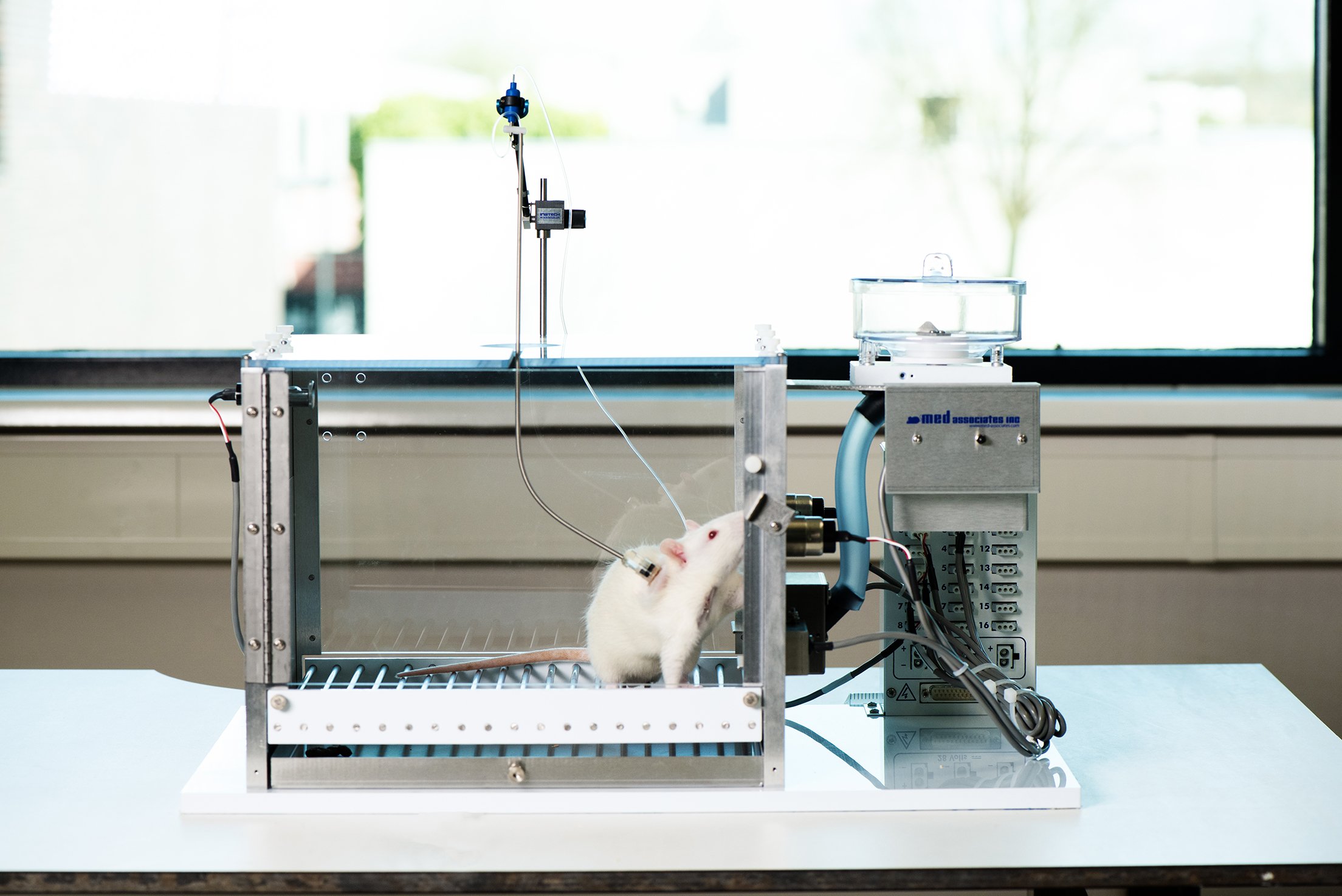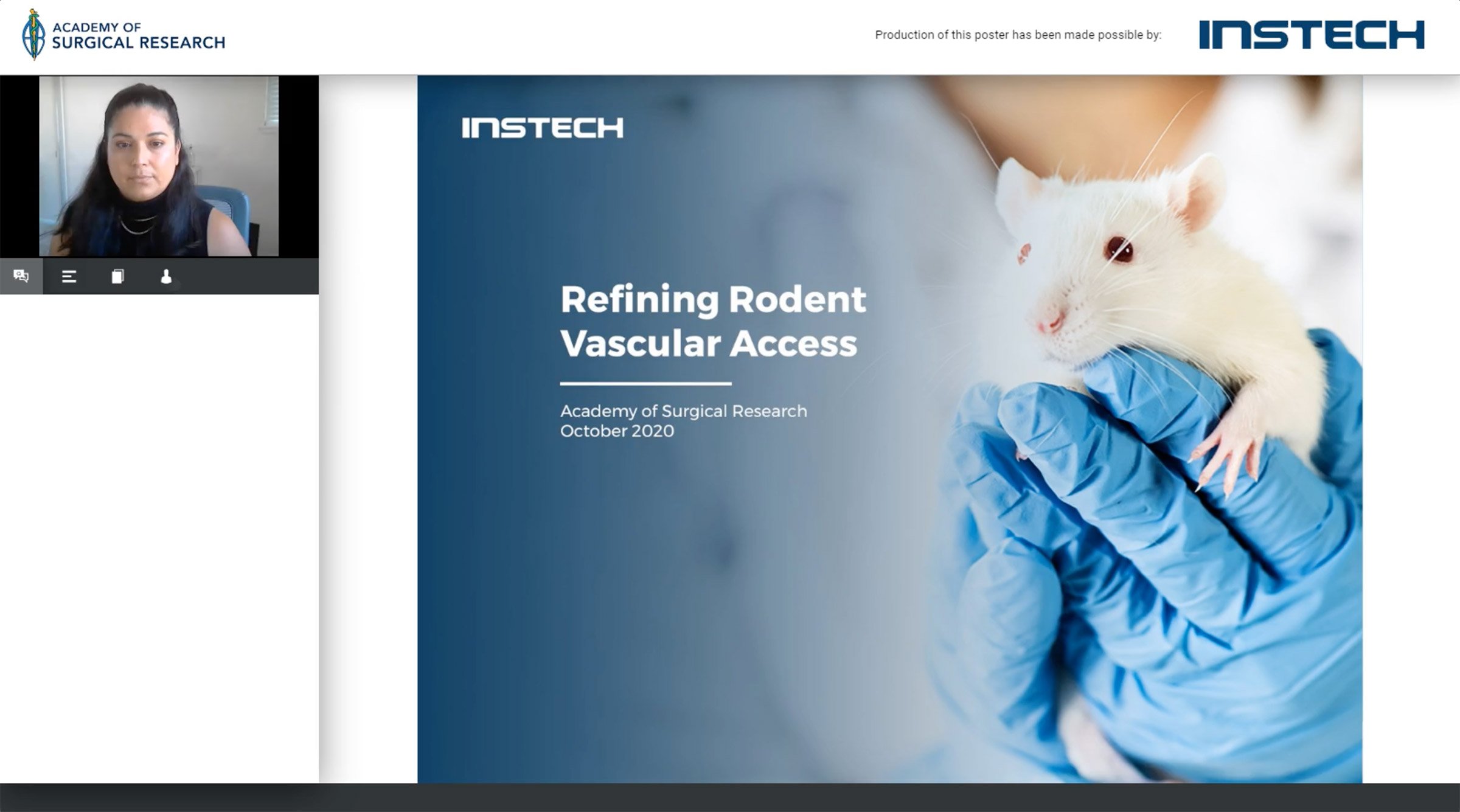
We all know that rodents are highly social animals and need companionship to be happy and fully express their normal behavior. A rodent without company is sad indeed, can develop uncommon behavior and become anxious and depressed.
Studies Show Single Housing Can Be Problematic
Stress: Bad for welfare, bad for data
Unfortunately, rodents are frequently singly housed after surgery, predominantly after catheterizations. In addition to recovering from the surgical procedure, they lose the companionship they need to thrive. Talk about stress… The 2010 study Post-Surgical Environmental Enrichment in Rodents states “...it is clear that changing a rodent’s environment and removing enrichment (including single housing) post-surgically is stressful to the animal, which can lead to delayed recovery and overall well-being.”2
Have you ever wondered how individual housing affects rodents post surgery?
Delayed Recovery and Healing
Many studies support the fact that housing rodents singly post surgery has negative impacts on wound healing and recovery. The paper Impact of ‘living apart together’ on postoperative recovery of mice compared with social and individual housing says "The importance of social interaction for mice has again been proven in this experiment. Our results show that social housing has a positive impact on postoperative recovery.”3
These findings are supported by a 2010 article appearing in EnrichmentRecord Post-Surgical Environmental Enrichment in Rodents. The article states “Levine’s study, which supports cohort pair or group housing, found that rats housed individually during physical injury healing had impaired healing compared to rats group housed, emphasizing the negative effect of isolation on wound repair.”2
Negatively Impacted Results
Can single housing impact anything else? Let’s think about this. If my singly housed rodents are depressed and anxious, how can it affect my experimental results? Would an animal displaying normal behavior be best for my study? The Post-Surgical Environmental Enrichment in Rodents reinforces this: “These findings emphasize the need to recognize housing conditions as an important factor during experimental design and data analysis, since increased stress could interfere with results. Because of this, previously unsuccessful drugs might have failed pre-clinical trials due to the increased stress of the rodents and could still be viable treatments. The traditional method of housing mice and rats alone increases stress and worsens epilepsy, according to a new study. The added stress could complicate results of pre-clinical drug trials.1 Also, “...it is possible that depriving an animal experiencing the added stress of isolation, coupled with the catabolic state the animal may already be in because of surgery, may turn an already physiologically abnormal animal more abnormal still. This obviously could lead to confounding data results as well as animal welfare issues.”2
Group Housing Possible with Vascular Access Buttons™
 Some questions then come to mind: How can I group house rodents after a jugular vein catheterization? Is this even possible? Historically, catheters were exteriorized in the interscapular area and rodents could not be group housed because of the likelihood of cagemates chewing off the catheters. It just could not happen… But as time went by, new technologies arose for accessing the vascular system. When catheters are placed subcutaneously, with the help of Vascular Access Buttons™ combined with a metal cap, it is now possible to group house mice and rats post operatively. This can be done immediately after surgery eliminating the negative effects of individual housing. In addition to group housing, the Vascular Access Button™ offers many advantages such as providing a closed system, extending patency duration, low stress sampling and infusion and reducing the frequency and length of catheter maintenance.
Some questions then come to mind: How can I group house rodents after a jugular vein catheterization? Is this even possible? Historically, catheters were exteriorized in the interscapular area and rodents could not be group housed because of the likelihood of cagemates chewing off the catheters. It just could not happen… But as time went by, new technologies arose for accessing the vascular system. When catheters are placed subcutaneously, with the help of Vascular Access Buttons™ combined with a metal cap, it is now possible to group house mice and rats post operatively. This can be done immediately after surgery eliminating the negative effects of individual housing. In addition to group housing, the Vascular Access Button™ offers many advantages such as providing a closed system, extending patency duration, low stress sampling and infusion and reducing the frequency and length of catheter maintenance.
We can see why it is best to keep rodents group housed whenever possible. They are happier and it matters. It matters to them, and should matter to us, not only for better research results but from a welfare and ethical standpoint. It is our responsibility to give our rodents the best suitable living conditions while they are under our care. They deserve it.
Group Housing = Improved Welfare = Happy Rodents = Better Experimental Results
Learn more about the VAB™ in this Guide to Vascular Access Buttons™
References
1Social Isolation Stresses Rodents
July 22, 2019
Society for Neuroscience
https://neurosciencenews.com/social-isolation-stress-14550/
2Post-Surgical Environmental Enrichment in Rodents
Apr 1, 2010
by EnrichmentRecord | Rodent Enrichment
Szczepan W. Baran, Veterinary Bioscience Institute; Karen Froberg-Fejko, Bio-Serv; Jaime Lecker, Bio-Serv; Elizabeth J. Johnson Putney Inc, David Disselhorst Laboratory Animal Resources Center at The University of Texas at San Antonio; Daniel Terreros, Department of Biomedical Sciences at Paul Foster School of Medicine; Marcel Perret-Gentil, Laboratory Animal Resources Center at The University of Texas at San Antonio.
https://enrichmentrecord.com/post-surgical-environmental-enrichment-in-rodents/
3Impact of ‘living apart together’ on postoperative recovery of mice compared with social and individual housing
2007
Pascalle L P Van Loo, Division of Laboratory Animal Science, Department of Animals, Science and Society; Nynke Kuin, Division of Laboratory Animal Science, Department of Animals, Science and Society; Rene´ Sommer, Division of Laboratory Animal Science, Department of Animals, Science and Society; Harut Avsaroglu, Therese Pham and Vera Baumans, Division of Laboratory Animal Science, Department of Animals, Science and Society and Central Laboratory Animal Institute, Utrecht University, The Netherlands, Karolinska Institute, Stockholm, Sweden Laboratory Animals
https://pubmed.ncbi.nlm.nih.gov/17988439/

